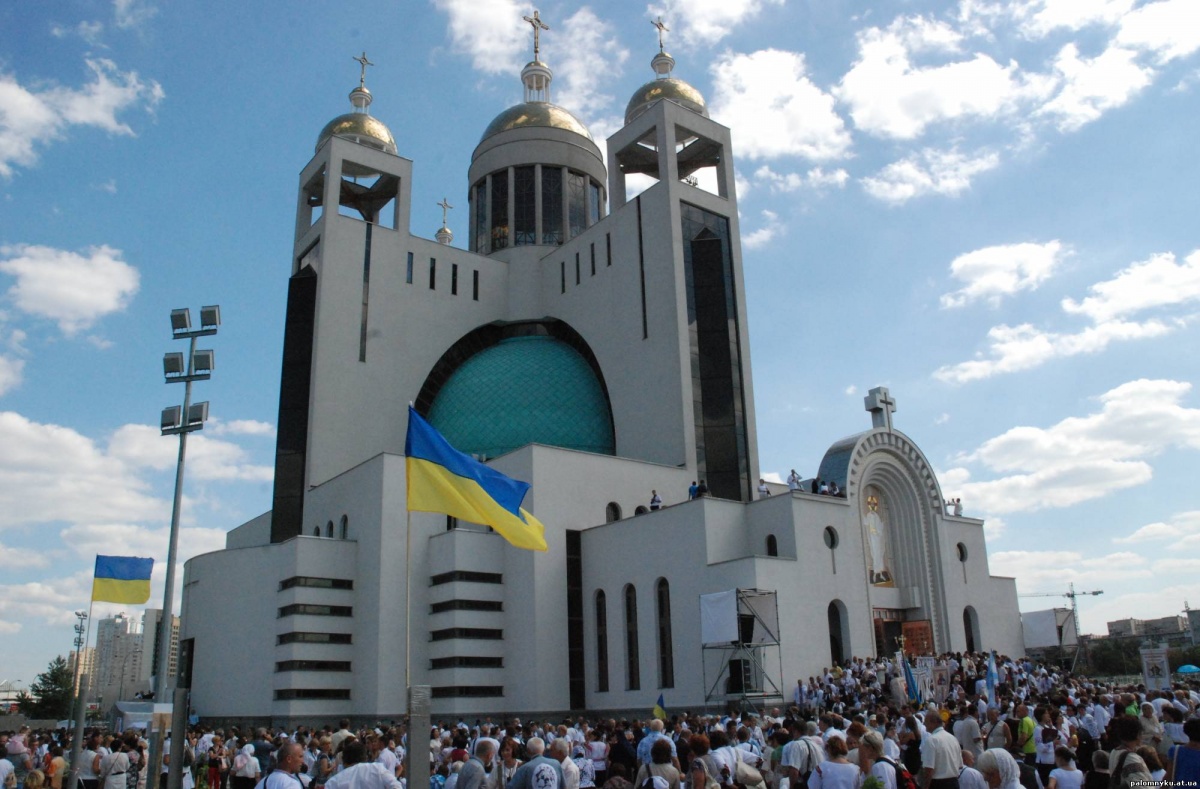Since 1991, the Kremlin and the Moscow Patriarchate have been worried about the emergence of a Ukrainian Orthodox Church independent from Moscow, the appearance of which would reduce the Moscow Patriarchate to a second- or third-tier church in the Orthodox world.
But now, in addition to that, some in Moscow are worried that the Ukrainians may pursue the formation of a new kind of national church, one that would unite under Kyiv not only Orthodox congregations and bishoprics in Ukraine but also the Greek Catholics, an Eastern rite church now subordinate to Rome.
Such a development, were it to occur, would strike even more directly at the imperial aspirations of both the political and religious elites in Moscow not only in and of itself by including Ukraine within a Western ecumene but also by serving as a possible model for other national Orthodox organizations in Eurasia.
Were that to happen, it would constitute an even more dramatic threat to the status and pretensions of the Moscow Patriarchate of the Russian Orthodox Church because it would advance the religious world led by Rome deep into what Moscow secular and religious now views as the canonical territory of the Russian church.
In the current “NG-Religii” publication, Vladimir Rogatin, a graduate student at the Volga Federal University in Kazan, traces the complex history of Uniatism and the issue of the formation of a single autocephalous national church in Ukraine.
He notes that the first proposal for uniting the Greek Catholics and Orthodox in Ukraine was advanced by Archbishop Vsevolod Maydansky of the Ukrainian Orthodox Church in the US who argued that such unity could be achieved by continuing dialogue and joint conferences and recognition of mysteries.
The US clergyman almost 25 years ago formed the Study Group on the Kyiv Church, “the goal of which was the inclusion in the official ecumenical dialogue of the Ukrainian Greek Catholic Church” and especially the recognition of the official status of that church by the Constantinople Patriarchate.
Maydansky has argued, Rogatin writes, that “the church of Kyiv was the first local Church which suffered internal division as a result of the split between Rome and Constantinople. The cure of this wound of the Kyiv church” is thus a requirement for “real dialogue between Catholics and Orthodox.”
Ukrainian churchmen and politicians, the Kazan scholar continues, have viewed this conception as a major stepping stone to the formation of an autocephalous Ukrainian church. Among the most prominent advocates of Uniate involvement in such a unified church is former Ukrainian president Viktor Yushchenko.
In their view, Rogatin says, “being part of the Roman Catholic Church and independent of the Moscow Patriarchate, the Ukrainian Greek Orthodox Church is considered as the religious structure which most closely corresponds to the political and nationalist ambitions of the Ukrainian elite.”
The Vatican has been less than fully supportive of this effort, Rogatin suggests, and he argues that Patriarch Kirill’s recent meeting with Pope Francis in Havana was designed to reinforce that view. But the appearance of Rogatin’s article suggests that some in Moscow are less certain that a Uniate role in Ukrainian church unity has thereby been precluded.
Related:
- The Church in the Bloodlands
- Kirill wants a ‘guarantee’ from Pope in his war against Church in Ukraine, Kholmogorov says
- Ukrainian Orthodox Church Kyiv Patriarchate in Crimea evicted from Cathedral
- Moscow Patriarchate losing parishes to Kyiv church and its dominance of Ukraine’s religious life
- The Russian Orthodox Church of the Moscow Patriarchate resembles the CPSU of Soviet times
- Russian Orthodox Church returning to Soviet-era norms, Bychkov says
- How Russian Church serves Kremlin propaganda
- Another terrorist training camp held at a Russian Orthodox church near Moscow
- Stalin and the Russian Orthodox Church
- Moscow Patriarchate’s loss of Ukrainian churches will render ‘Russian world’ idea a purely militant nationalism, Falikov says
- Two major non-Moscow Ukrainian Orthodox churches move toward unity
- Why Putin fears the Ukrainian Catholic Church




